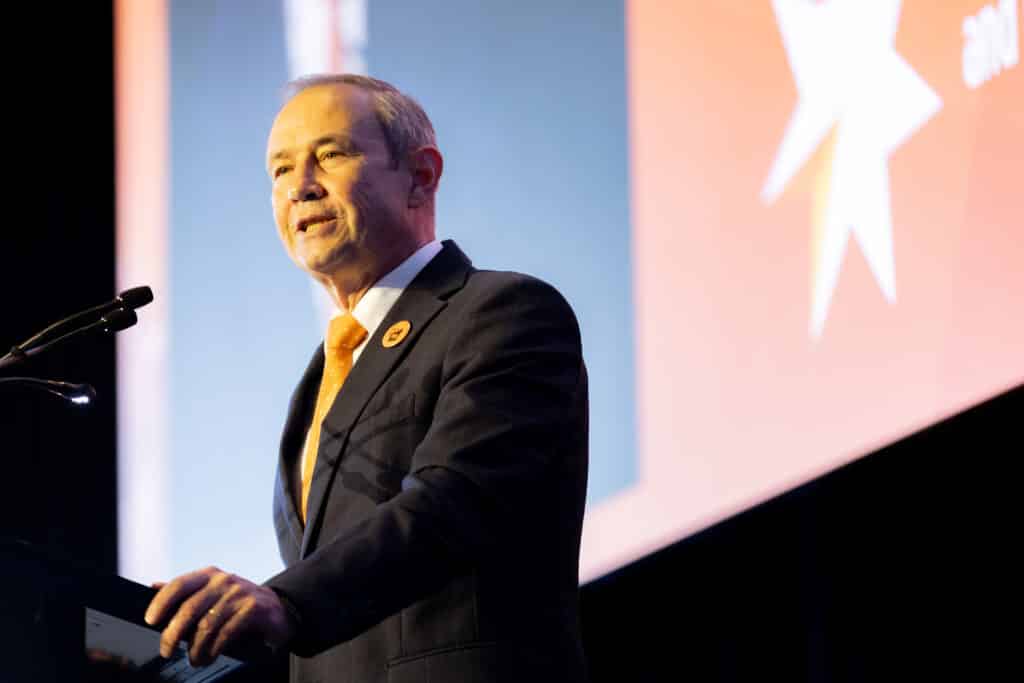Business confidence in Western Australia has rebounded to its highest level in more than three years, as concerns about skills shortages eased and cost increases remained steady, according to CCIWA’s latest Business Confidence survey.
The survey of 624 businesses for the March quarter found businesses were the most confident they had been since December 2021, with two in five (41%) expecting better economic conditions in the short term.
More than a quarter (27%) expected conditions to improve over the longer-term, also the highest since December 2021.
CCIWA Chief Economist, Aaron Morey, said the overall outlook from WA businesses was optimistic.
“The two biggest barriers to business growth in WA have been cost pressures and skills shortages, and these have been persistent for the past few years,” he said.
“Both of those concerns remain but have clearly started to ease which is boosting confidence across the economy.”
High costs remain the biggest barrier to growth, with two thirds (68%) of businesses reporting it as a barrier. This has remained steady since the December quarter, remaining at its lowest level in three years.
Cost concerns were most prevalent in the arts and recreation sector, where 91% reported this as a barrier to growth, followed by accommodation and food services (90%) and manufacturing (80%).
Labour shortages remain the second most significant barrier to growth, with three in five (62%) WA businesses reporting this – down five percentage points since December.
“We also saw greater concern about increasing government red tape in the March quarter, with almost a third (33%) of respondents identifying it as a barrier to growth,” Mr Morey said.
“Businesses in healthcare and social assistance, education and training and agriculture were most likely to report that red tape was a barrier to growth.”
Skills shortages still an issue
The report also highlighted the industries still experiencing skills shortages, with transport (75%), professional services (74%) and resources (70%) sectors still struggling to find skilled staff.
Morey said it showed there was still a critical need to increase the number of apprentices and trainees for key trades.
“Data from the Australian Bureau of Statistics from September showed a 29% decline in the number of people starting apprenticeships in WA, which coincided with a reduction in employer incentives,” he said.
“It’s really important that employers are encouraged to take on trainees and apprenticeships to secure the pipeline of workers we need for future demand.”
The March Business Confidence survey also asked WA businesses about their reliance on gas, finding the majority (51%) rely on gas beyond the use of grid electricity.
WA businesses reported gas made up around 13% of their total production cost.
Morey said the findings highlight the importance of securing reliable gas supplies for WA.
CCIWA’s Economic reports, including Outlook, are available exclusively to CCIWA Complete, Advantage and Corporate Members. For more see CCIWA’s Economic Insight page.













